
On Wednesday and Thursday 7-8 October
2020, demonstrations were held in front of the Tunisian parliament
against the so-called “bill to protect police and custom forces”,
despite the Tunisian penal code already sufficiently protecting the
latter.
The proposal had already been presented a few months ago, but
a cause of the pandemic and government reshuffles it was only discussed
in the last parliamentary session.
This law proposal comes in a
country where the repressive forces of the state have a de facto
impunity and where cases of widespread abuse of power against citizens,
violence and repression against demonstrators and social and political
movements abound up to the excessive use of force up to the
assassination as in the case of the young ultras Amor Laabidi in March
2018, thrown into a stream by the police at the end of a football match.
A
group of political organizations and associations raised a cry of
protest against the idea that all this is legalized by Parliament, the
latter among other things has a high composition of reactionary forces,
one of which explicitly refers to the previous regime.
In this
context, Myriam Bribi, a militant journalist who had spread her support
on the internet via the militant information site inhiyez for the
campaign against this bill, was summoned to the police station in her
city in Sfax and denounced, as often happens for a real and its crime of
opinion, among other things we remember that in Sfax last July, the
well-known professor of philosophy and party secretary of the Elkadehin
party (Party of the Most Oppressed / Exploited Workers), for one of his
articles, had spent 6 days in jail. Yesterday, the Tunisian Lawyer
Association in a press release spoke out against this bill because if
approved it would jeopardize the right of expression.
In the demonstration on Wednesday, dozens of young people, but not only, organized a roadblock in front of the entrance of the Assembly of People’s Representatives to express their dissent, the sit-in was violently attacked by the policemen present with shoves, kicks and batons, four demonstrators were stopped in particular the young comrade Sayf active in various movements and fronts of struggle as well as in internationalist battles such as the campaign for the liberation of George Ibrahim Abdallah, precisely because of his political and social commitment was particularly targeted as shown by the photographic testimonies and medical reports made public by Saif himself in the aftermath of the attack.
In any case, the demonstrators resisted the attack and were not dispersed, demanding the immediate release of the four.
Indeed,
after a few hours the detainees were released, also because the violent
aggression turned out to be a media boomerang for the police,
representing a further example of the conduct of the Tunisian police
which remained structurally linked to the methods of the old regime and
still remains a pillar of the Tunisian regime.
All this was denounced
by the demonstrators reiterating the danger represented by an explicit
legalization, laws impunity, of the conduct of the repressive forces.
The
events of Wednesday far from scarring the participation, attracted even
more young people to the streets on Thursday, in addition to the
revolutionary and communist orientation comrades, there were also some
unorganized young people who spontaneously expressed their contempt for
the police with goliardic and mocking gestures (a widespread phenomenon
in other countries but here practically unprecedented and which has
incited journalistic looting).
The deal of this bill shows once again
that a few weeks after the 10th anniversary of the outbreak of the
Tunisian Uprising for Dignity, the Tunisian state has essentially
remained a police state serving the same ruling class in power since
1956: a bureaucratic bourgeoisie and comprador in the service of
imperialism that only a New Democratic Revolution can wipe out.
Mechichi government in the front line in the service of imperialism, in the rear for people right to health and life
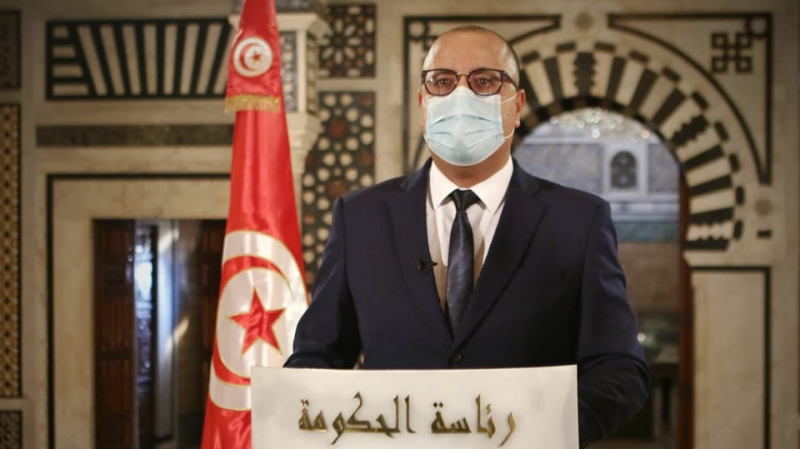
The epidemiological situation in the country worsens at an increasing pace day by day, in fact if in the
100 days during the first wave, which in Tunisia goes from the WHO classification as a pandemic (March the 12th) until June the 27th (date in which they ended the very last lockdown restrictions with the opening of the borders), the country was one of the best performing in the world in having faced the pandemic with 50 deaths and about 2,000 infected, in the following period of the same duration the total deaths have now reached 350 (7 times more than in the previous period) and to 20,000 infected (10 times more).
The new government has clearly taken a liberal stance of non-intervention: since August there have been declarations by politicians and institutional leaders who repeat until exhaustion the slogan that “we must live with the virus” this, in the absence of a national containment strategy, has resulted in this big increase number of infected people and deaths, not even a serious effort has been made to organize information and awareness campaigns in the workplaces, or in schools and popular neighborhoods.
Despite this, the government, while not fulfilling its responsibilities, points the finger at the citizen and the individual behavior supported in this by the “intellectual” sectors of the urban small and medium bourgeoisie.
The national health system, already weak in beds equipped with oxygen as well as intensive care units (ICU) in these days has passed the point of no return with the saturation of the available beds and units, as recently reported by the doctors of the capital; in the southern and interior governorates where there has never been a single ICU in local hospitals, the probability of death in case of contagion rises dramatically.
Despite this catastrophic situation, Prime Minister Mechichi in a short message to the nation on the evening of October the 3rd explicitly reiterated that the idea of a new national lockdown is out of the question, reiterating that the main economic activities will continue, including such cafes and restaurants (with mild and symbolic limitations) as well as schools and universities, reiterated that compliance with the rules such as the use of masks and social distancing is fundamental, but has prohibited cultural and social events and demonsrations.
However for more than a week, there reiterarestaurantsted declarations about the possibility of local lockdowns on a provincial basis in the most affected areas (250 active cases per 100,000 inhabitants) and it’s also known that these delegations are 17 delegations; in the recent message to the nation that decision was reiterated by the prime minister, but despite that to this day it still remains a mystery which these 17 provinces are “in which the contagion occurs rapidly” for at least 8 days without any measures being taken (!).
On the contrary, even before the evening of the 3rd of October in three governorates (regions), Sidi Bou Zid, Monastir and Susa, a curfew was imposed from 20:00 to 6:00, in the hours when there is the lowest risk of contagion .
On the one hand, the rhetoric of individual responsibility and blaming of individual citizens is confirmed, on the other hand there is the implementation of propagandist and useless measures against the pandemic such as curfews.
While in the last three days the number of infected people and official deaths has daily galloped at a rate of 1,200 and 20 respectively, the Prime Minister’s message announced a slight increase in beds within a month:
“Hospitals will be strenghten by 1200 oxygen required beds (public sector) and 700 ones (private sector). We will also go from the actual 95 ICU beds to 220 from now to the beginning of november. We will totally have 420 beds at November 2020“.
Even if what was announced will be realized, in this period of time there is a very real risk that the deaths in the hospital wards are already counted, as has happened in Italy and in other countries.
Mechichi government seems more committed to satisfy the requests of Italian imperialism to counter the departures of Tunisian emigrants by multiplying the effort after having collected 10 million of euros from the Conte government, and waiting for the other 11 ones from the EU that will pay them to the Tunisian government in change of “structural reforms” that as always will weaken the already precarious Tunisian welfare system.
Against this (non) anti-covid policy, last week the nurses carried out a two-day general strike denouncing the precarious conditions in which they are forced to work without a country or masks, also for about a week a general strike of the workers in the railway sector in the face of the attack of certain rights such as the meal voucher or the contractual fee as well as health safety conditions.
Evidently fighting the pandemic is not the priority of the Tunisian “old state”, the comprador bourgeoisie represented by Mechici government cannot and does not want to solve the main problem that the country is going through but is only capable of carrying out its historical role: acting as an intermediary for foreign interests by selling off the country’s resources, opening its market to the penetration of foreign capital in order to guarantee its permanence in power with the economic and military support of imperialism.


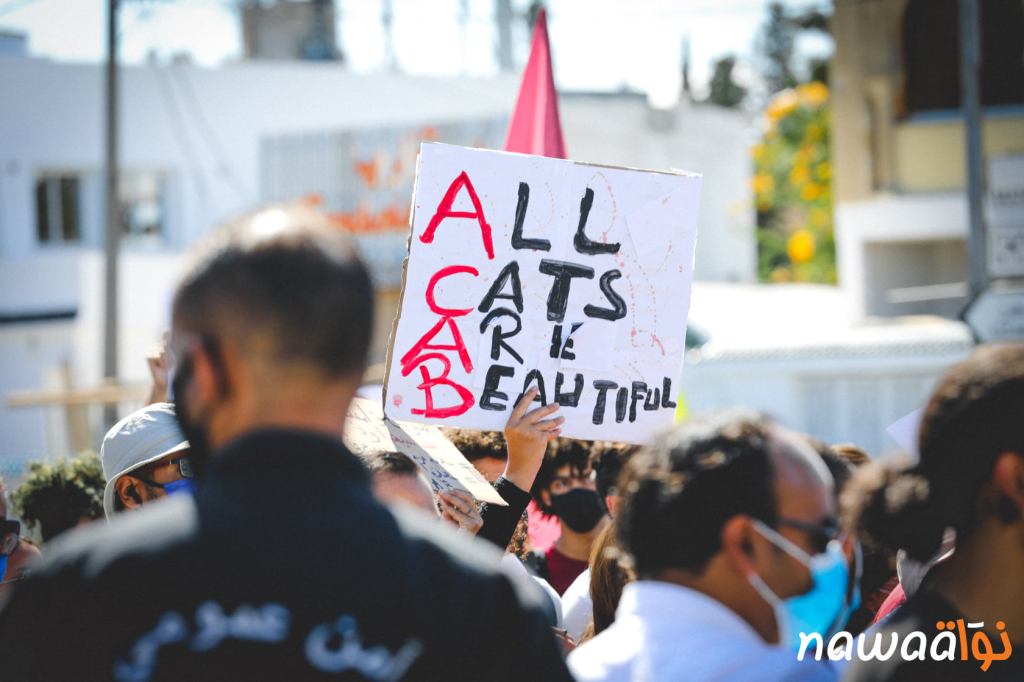

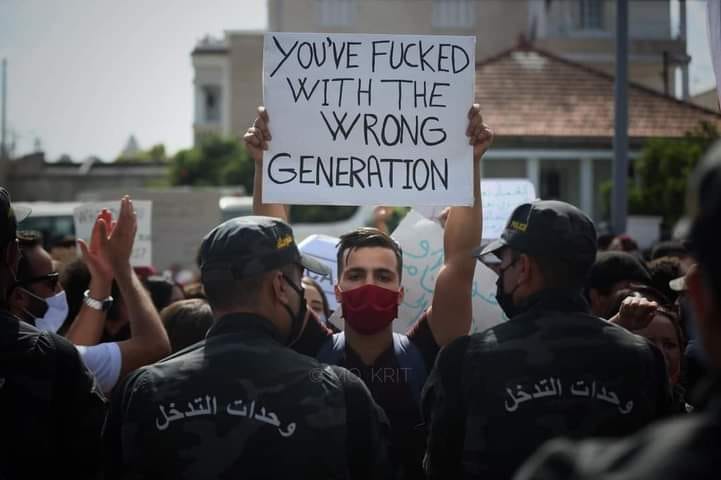

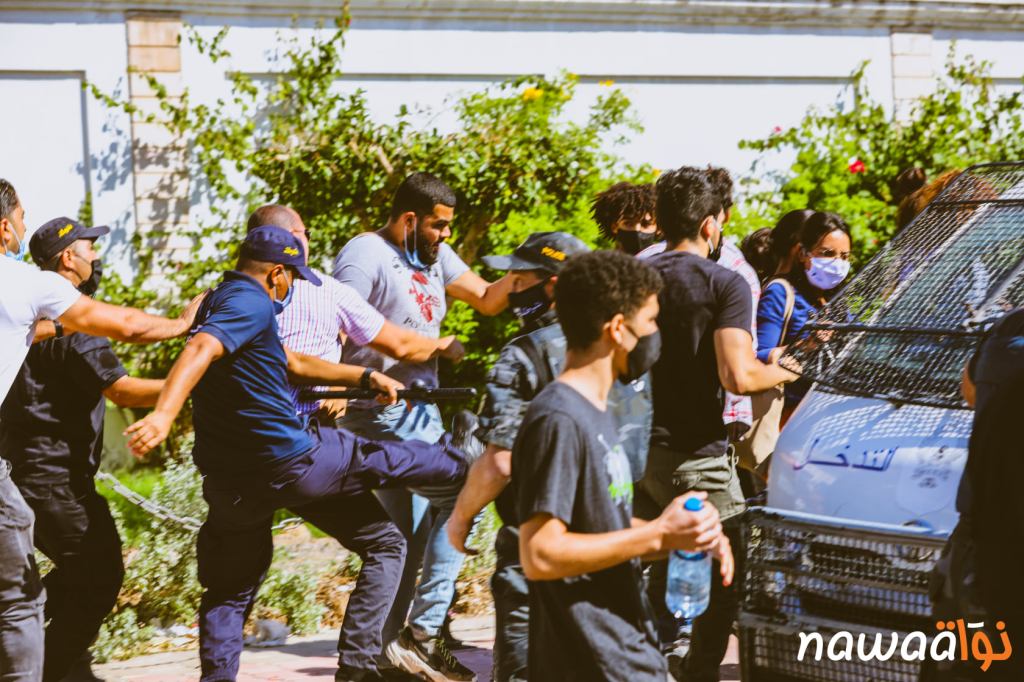





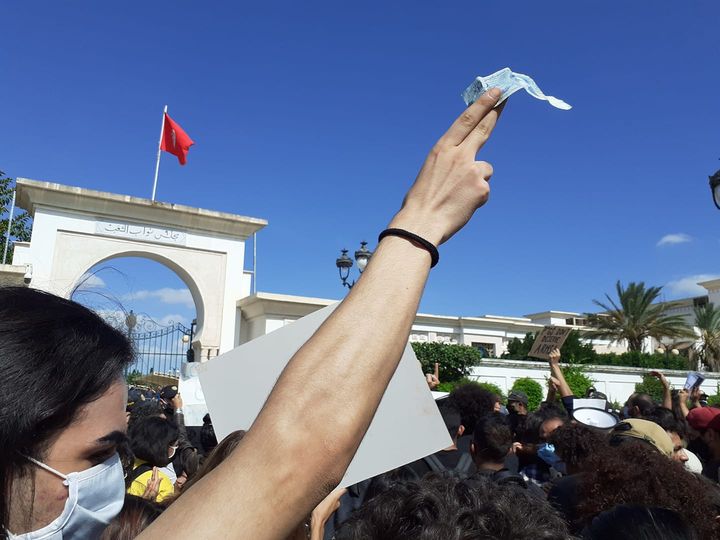

No comments:
Post a Comment